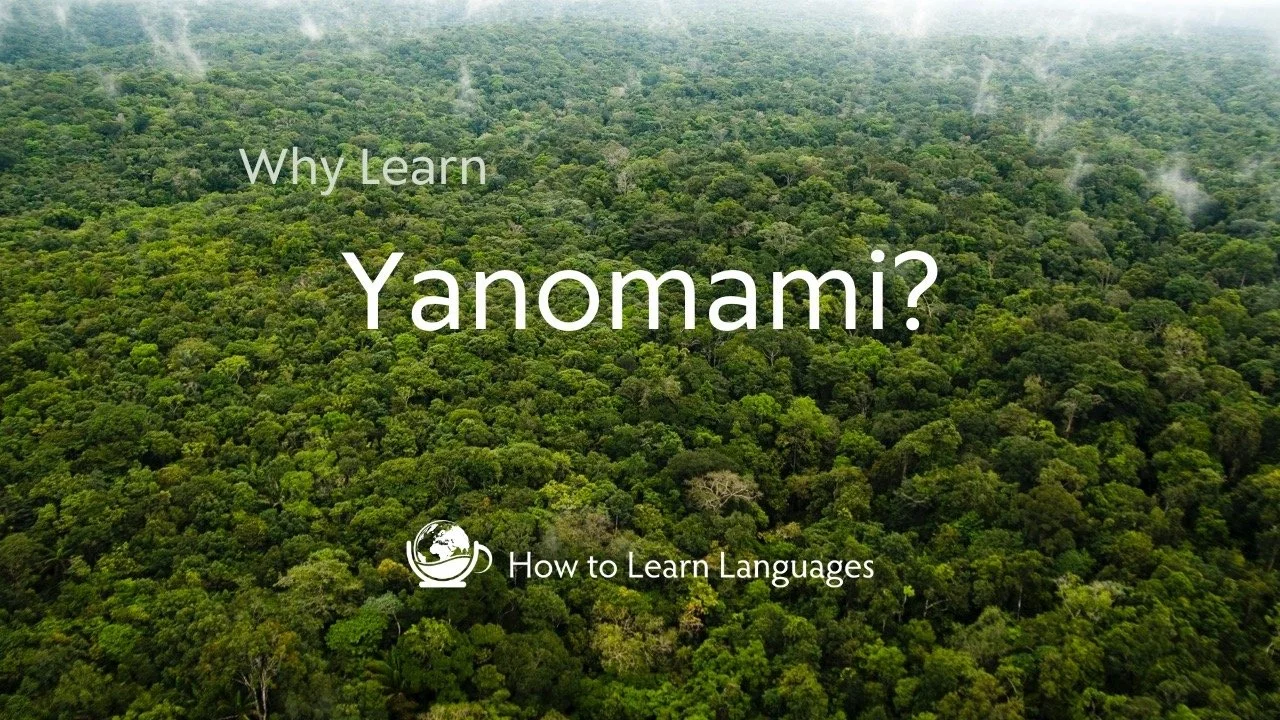Why Learn Yanomami Languages?
Why learn languages?
Though it’s true a second language can help us find jobs, let’s also focus on the other reasons for learning a language. We spend so much of our lives having to serve the interests of an economy that doesn’t care about people or the world. It’s high time we were able to put the interests of each other ahead of those of CEOs and tax havens. Learning a language, in a variety of ways, can help us do this.
Society often funnels us down a career-path. Before we’ve had the chance to discover where our passions reside, we find ourselves scrambling from paycheck to paycheck on low or minimum wages. Worse still, the labour we provide either leaves us starved of inspiration, or in some cases even robs us of time to pursue our interests - all of which has damaging implications for our mental and physical health.
Learning a language can provide some relief, and even an escape, from these pressures. It can’t stop us worrying about bills or rent, but it can help us find other lines of work. Aside from potential career benefits, the process itself is rewarding, and a lot more fun than traditional methods have led us to believe. Far from being an unwelcome burden on our daily routines, learning a language can become an enjoyable distraction from life’s pressures. As well as helping our immediate mental health, it is also thought to aid cognitive function, and could delay the symptoms of dementia.
Learning a language may even help us tackle the problems facing the world. If we can communicate with and learn from each other, we stand a better chance of organising against issues as global as climate breakdown.
What are the Yanomami languages?
The Yanomami languages are a group of closely related languages spoken by the Yanomami people, in southern Venezuela and in the northwestern Brazilian states of Roraima and Amazonas. There are thought to be around 30,000 speakers of Yanomami languages.
Under the corrupt, fascist regime of Jair Bolsonaro, a combination of Covid-19 and illegal logging, drilling, and mining threaten the Yanomami on a daily basis.
Though Brazil’s indigenous peoples have come under renewed attack from the regime of Jair Bolsonaro, there are plenty of people from indigenous communities and organisations pouring their time into fighting for the rights of indigenous peoples and their languages.
One of the leading voices for both the Yanomami and for indigenous rights in general is Dário Kopenawa, along with Davi Kopenawa.
Socio Ambiental has recently published a video and ebook about the Yanomami languages, spoken by the Yanomami people in lands that stretch north and south of the border between Brazil and Venezuela. It’s also worth watching Maracá, a series produced by APIB, focusing on the threats faced by the indigenous peoples of Brazil.
For more information and useful links on the indigenous peoples of Brazil, the following post can be found on the How to Learn Languages website and YouTube channel :
The Indigenous Peoples of Brazil
Why learn Yanomami languages?
Although speaking a new language does not revolutionise how you see the world, the people and cultures it takes you to will. It's almost like discovering the world again as a child, just in a different tongue. It refreshes the mind and can fill you with the impetus to experience different cultures and meet new people.
Learning about the Yanomami and their languages can help to raise awareness of the fight for the rights of indigenous peoples in Brazil. Such rights should be universal, and are thus enough reason in and of themselves. But if anyone wanted further cause, then it’s worth highlighting that Brazil’s indigenous peoples have been the best guardians of the Amazon rainforest, as well as other ecosystems in Brazil.
Chances are that if you’re reading this, you already have an idea of why you’d like to learn about the Yanomami and their languages. Whether it’s for professional reasons or pure curiosity, I hope these paragraphs have given you a brief sense of the benefits learning Yanomami, or indeed any language, can bring.
If you're interested in learning more about the Yanomami and their languages, more information and resources can be found on its Get to Know page here on the How to Learn Languages website :

